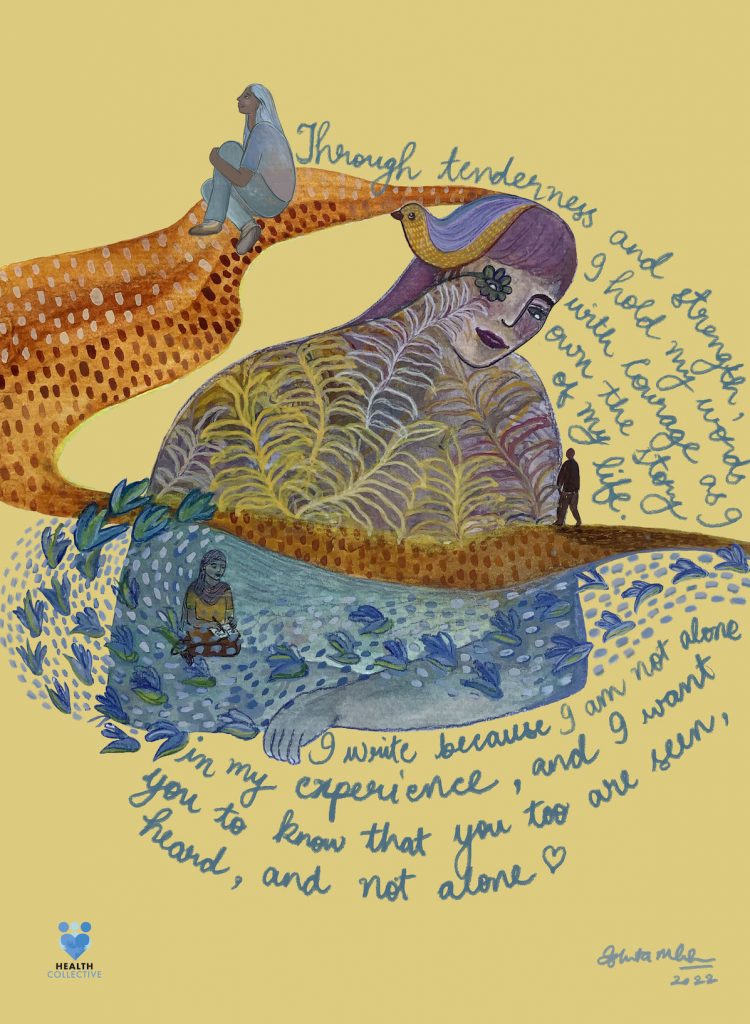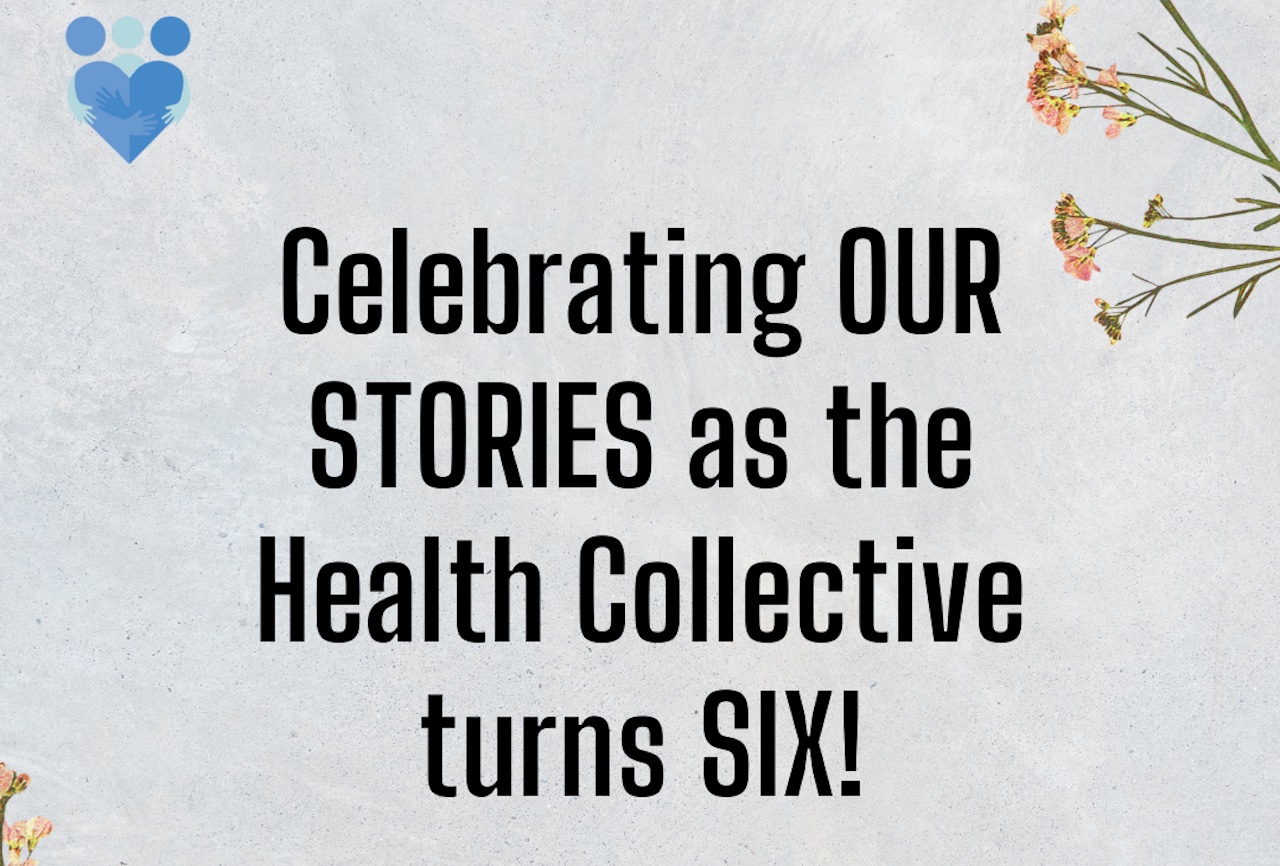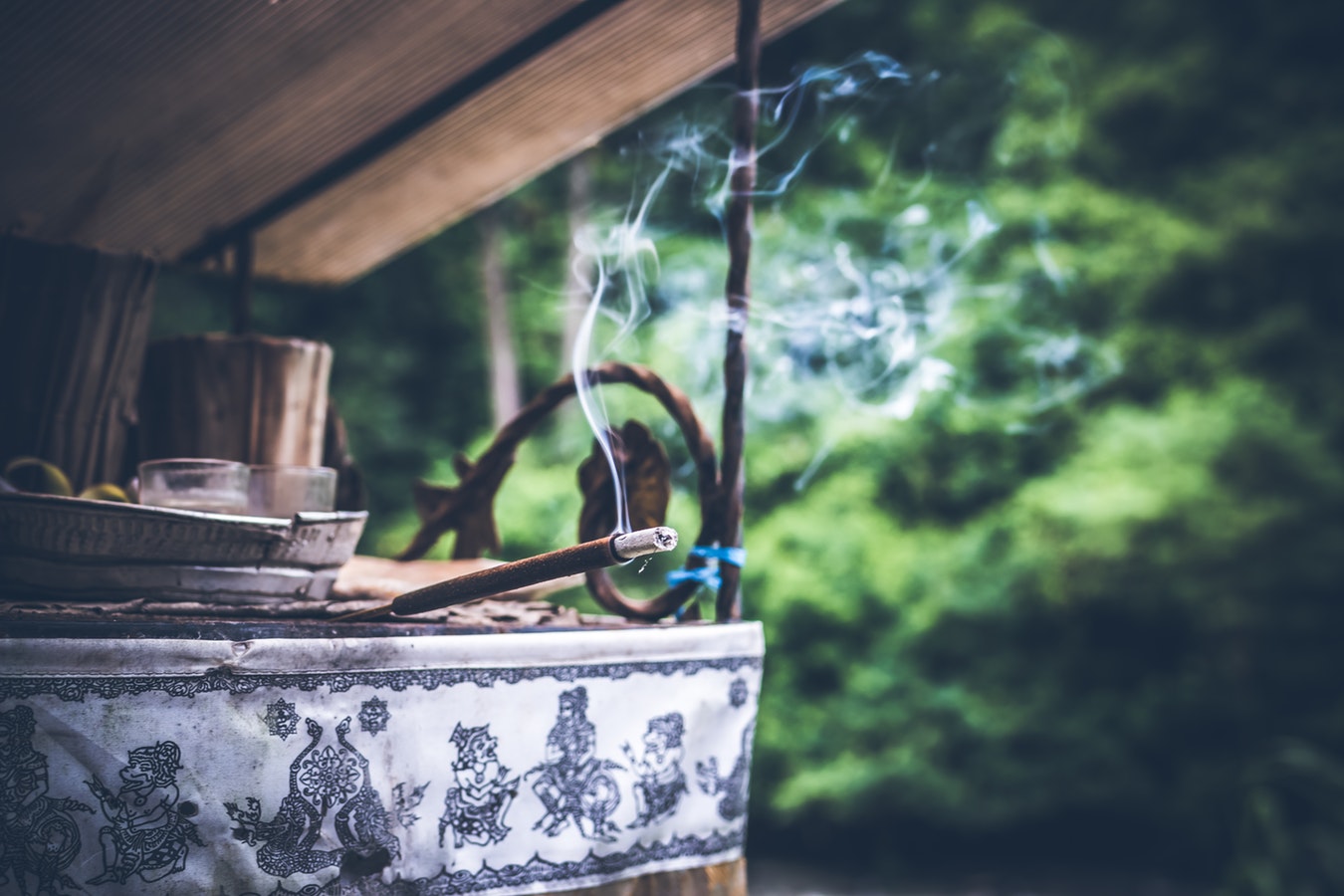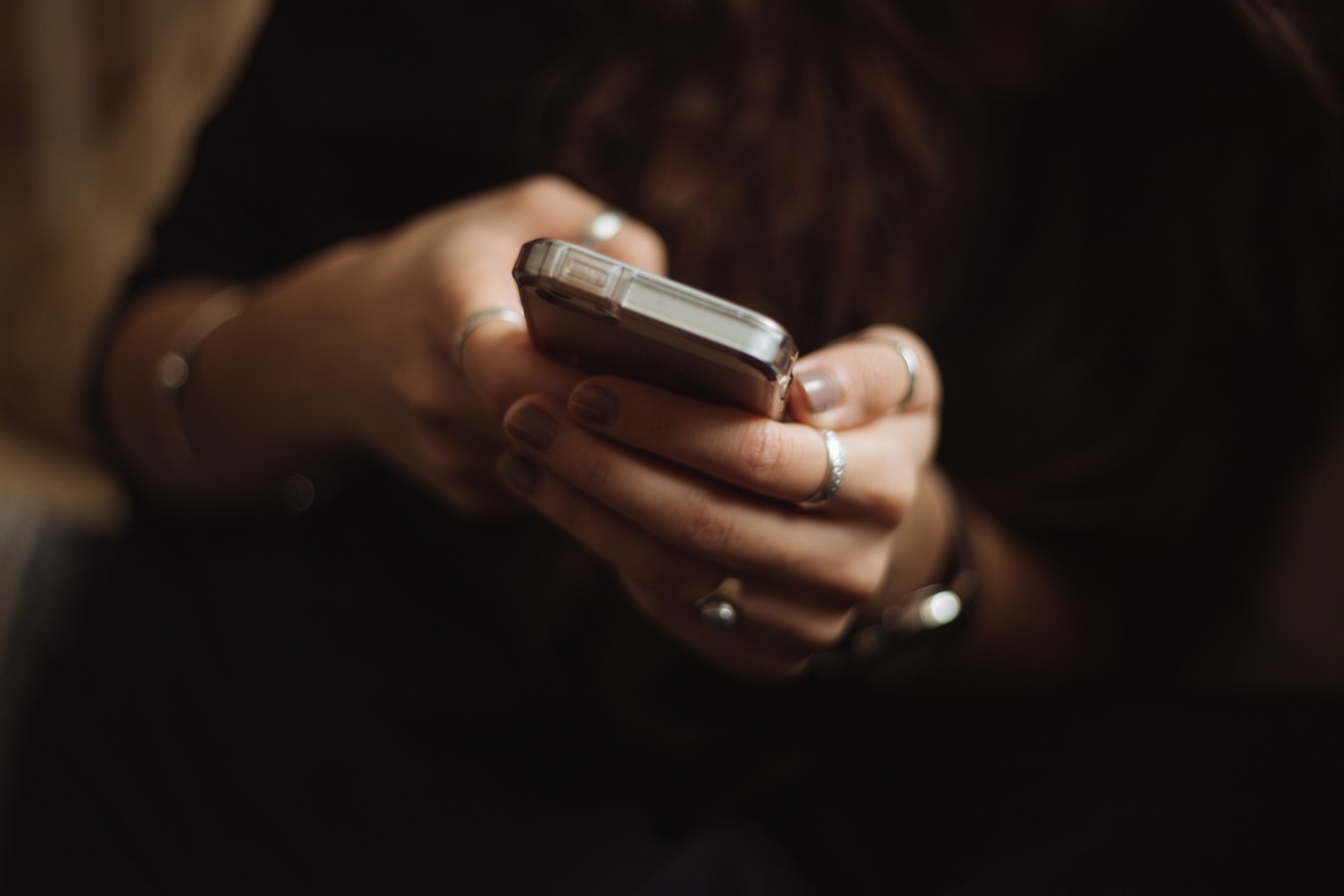Can our Stories Come Together to Make a Difference?
While celebrating turning six, The Health Collective held a series of panel discussions on various topics, including one on ‘Why We Tell Our Stories…”. The panel was hosted by Amrita Tripathi, the founder of The Health Collective. She is a journalist with an experience of close to 20 years in print, digital and broadcast media, and the co-author of the Mindscape series. Amrita welcomed Ayushi Khemka, the founder of Mental Health Talks India and a PhD scholar at University of Alberta as well as Ishita Mehra, a trained mental health advocate who works on the link between environmental disasters and mental health, to the panel.

Amrita Tripathi – Ayushi has written an amazing piece on the Health Collective’s website, on what it feels like to live with anxiety. (Editor’s note: This piece was shortlisted for the SCARF Awards!) Many people treat the illness as a ‘quirk’, or simply ‘nervousness.’ Or they go the other extreme and treat it very seriously. What has been your experience?
Ayushi Khemka – Yes the reactions I receive are poles apart. I do not want to disregard other’s experiences. However, I would say that only when one is properly diagnosed ‘anxiety disorder’, can it be called an ‘illness’. I feel emotions to a very intense degree. It’s very debilitating for me and something like ‘nervousness’ that I can easily get over.
Often people also treat anxiety like a quirk. Many brands use mental illness as a marketing tool. They talk about it very highly and portray it almost as a fun personality trait. You have to be neutral; you cannot romanticise or trivialise it.
Amrita Tripathi – Mental health is a wide spectrum. All of us have mental health. There are days we have good mental health or really bad mental health. There are days when I am anxious, like just before attending this panel. However, that doesn’t mean I have an anxiety disorder. When I started the Health Collective, most of my research and case studies were based on data gathered in the US or the UK. Now we have started having some India-centric conversations. A lot of the discussions here often trivialise mental health, just as suggesting some quick fixes to solve it etc. As an advocate, how do you deal with this?
Ishita Mehra – I recognise the diversity that exists in India. I recognise my privilege as a fair skinned, upper caste, north indian. Therefore, whenever I do mental health advocacy, I try to be mindful of keeping my own perspective in check. In India, people have a lot of misconceptions about advocates. They think that we can give them advice. However, the only thing we can do is offer them resources and make them aware of the problem in the first place.
Amrita Tripathi – Right. Ishita, you made a beautiful illustration for this panel on how it feels to experience mental illness. What inspired you to share your story, despite knowing that there is so much stigma around mental health?

Ishita Mehra – It did not come from a ‘need’ to share my thoughts as such. I just started expressing how I felt and only then, did I realise the value in sharing my feelings. People really cherish art and it binds diverse individuals together without words. It makes people feel emotions they did not realise they had. For instance, we all have a song that we feel emotionally attached to, because it reflects some emotional challenge or experience that we have been through. We can almost find our own reflection in it. Expressing through my art helped me not only to get my feelings off my chest, but it also helped others.
Amrita Tripathi – Ayushi, does this tie in with the concept of ‘language’ when discussing mental health that you were talking about? You said we need to use simple terms so that we can engage the maximum number of people in our advocacy and discussions. Do you think art is a great way for making conversations around mental health easier?
Ayushi Khemka – Sure. I love Bollywood. I make sure to use it in my advocacy as much as I can. I want to be able to talk about mental health in a way that all of my friends get it. I want to make these conversations as interesting and inviting as possible. I use many pop culture references in my content. I do not intend to trivialise these issues but I like to use memes and other things in a gimmicky way, to expand my audience.
Amrita Tripathi – You both are young mental health advocates. Do you ever feel like you have taken on too much on your shoulders regarding mental health advocacy? Or do you feel like there is a lot that still needs to be done in this sphere.
Ishita Mehra – When I first started mental health advocacy, I did not know much about it. Over the years I have learned the finer aspects of it, especially how issues like caste and the environment play a role in it. I come from a privileged background and have always lived inside a protective bubble. It took a lot of time to understand how different people experience mental illnesses around the country. For me, the next step in my advocacy would be to help marginalised communities rise up and speak about mental health.
Ayushi Khemka – I don’t perceive advocacy as a burden. I think there is still a lot more to be done to combat the stigma around the issue. I have been speaking about mental health for years and despite that it is sometimes very difficult to make even my family and friends understand what I am going through. It gets very exhausting after a while. Not only is mental illness exhausting, but we also have to explain what support we require from our loved ones.
Amrita Tripathi – How do we become better allies for people suffering from mental illness?
Ayushi Khemka – There are a lot of times when people say, “I am there for you.” However they don’t actually mean it. Instead of talking about support, I think people need to actually provide support to their loved ones going through a tough time.
Secondly, as much as mental health is an individual issue, it stems out of certain social systems as well. The entire structure of society, the laws we have and the discrimation faced by various communities impact their mental health. We need to start speaking about these issues, no matter how uncomfortable or political they may seem.
Ishita Mehra – We also need to ask ourselves, “are we our own allies?” Self-love is very important. However, often it also stems from community love. I am taking a page out of the book written by our indigenous leaders. When we grow together, we grow individually as well. Similarly, if we are kind to ourselves, we become kind to others. They are not mutually exclusive things.
Watch the panel here



